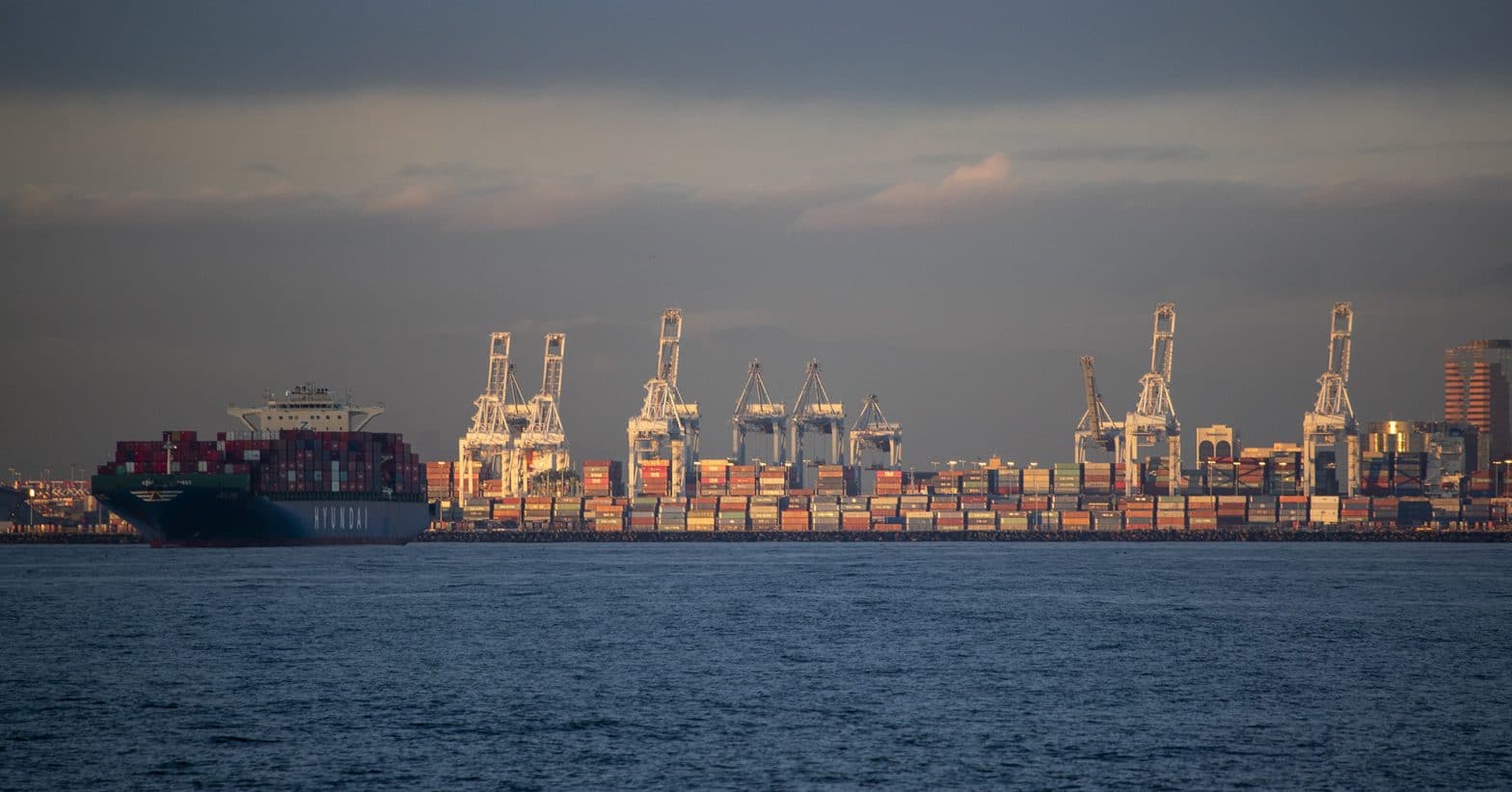Jones Act Reform Is Not a Party Issue
COMMENTARY

Many political disagreements divide neatly along party lines, but the protectionist Jones Act isn’t one of them.
In Congress and state Capitols across America, politicians from the two major political parties can be found arguing for and against the law, which requires that all goods shipped between U.S. ports be on ships that are U.S. flagged and built, and mostly owned and crewed by Americans.
Jones Act supporters claim the law is needed to ensure a strong shipbuilding industry, protect maritime jobs and enhance national defense.
Jones Act reformists say the law causes higher prices by limiting shipping competition and forcing Jones Act carriers to use higher-cost crews and more expensive U.S.-built ships. This has led to a steady decline of America’s oceangoing fleet and merchant marine, which has actually undermined the nation’s military preparedness.
At the national level, support for the law currently extends to the highest levels of the Democratic Party. For example, in July 2023, while expressing his commitment to “supporting good union jobs,” President Joe Biden told an audience of Seafarers International Union members that the Jones Act would not be modified under his watch.
Democratic support for the Jones Act is also pervasive at the state level and can be found even in Hawaii, whose residents are among the hardest hit by the effects of the law, since the state is almost completely dependent on waterborne imports.
But Republicans across the country have also been among the law’s staunchest supporters. In fact, the original sponsor of the 1920 law was a Republican — U.S. Sen. Wesley Jones from Washington state.
Almost a full century later, in 2019, it was Republican lawmakers and administration officials who thwarted former President Donald Trump’s plans to reform the Jones Act, according to a book by Casey Mulligan, chief economist for the Council of Economic Advisers during the incident.
Mulligan wrote that a key figure in blocking Trump’s reform efforts was former White House trade adviser Peter Navarro, who later wrote that the act is “critical to rebuilding an American shipbuilding industry that is essential to our national security and economic prosperity.”
Indeed, most Republican lawmakers who pushed back against Trump’s reform efforts represented shipbuilding states, including Republican Sen. John Kennedy of Louisiana, who said, “After talking to President Trump, I am confident that he realizes how important the Jones Act is to Louisiana’s maritime industry and that no changes will be made.”
Clearly, support of the Jones Act is a mixed bag of bipartisanship — but so is opposition.
Going back to Hawaii, Democrat U.S. Rep. Ed Case has long been one of the most outspoken advocates for Jones Act reform, claiming it “stifles meaningful competition” and imposes a “crippling drag on an already challenged economy.”
His stance on the issue is in stark contrast to that of Hawaii’s three other Democratic congressional delegates, all of whom frequently echo the assertions of America’s leading Jones Act lobby groups, such as the American Maritime Partnership and American Waterways Operators.
Case’s support for Jones Act reform dates to his first tenure in Congress, from 2002 to 2007. One of his primary opponents on the issue back then was fellow Democrat and Hawaii colleague U.S. Sen. Daniel Inouye.
Ironically, Inouye had been a big supporter of Jones Act reform in the late 1960s and early 1970s. In 1967, he actually united with Republican U.S. Sen. Hiram Fong from Hawaii and Democrat U.S. Sen. Ernest Gruening of Alaska to seek an exemption for their states from the Jones Act’s U.S.-build requirement.
That effort failed, but decades later, lawmakers from both main political parties are still willing to reach across the aisle to advocate reform.
In 2020, Case and U.S. Sen. Mike Lee, a Republican from Utah, participated in a webinar sponsored by the Grassroot Institute of Hawaii, during which they underscored the nonpartisan nature of Jones Act opposition — and even criticized their respective parties for failing to address the negative effects of the law.
“Sen. Lee and I, who come from different parties and in some cases have different ideological perspectives, agree on this one,” Case said during the webinar. “Frankly, I’m disappointed sometimes in my own party’s stance — or some members of my own party — on the Jones Act.”
Lee characterized the Jones Act as “standard, textbook protectionism that favors a certain industry at the expense of everybody else.”
“Both parties want to help America’s poor and middle-class through different mechanisms,” he said. “Here, we’ve managed to find both political parties undercutting what they themselves believe in.”
The purpose of that Grassroot Institute event was to announce the release of a new study that determined the Jones Act costs Hawaiian consumers about $1.2 billion a year, or about $1,800 a year per family.
Keli’i Akina, Grassroot president, urges in the study that lawmakers modify the Jones Act’s U.S.-build requirement “to allow for the purchase of ships from our friendly trading partners,” since U.S. ships typically cost three to five times more than foreign-built ships.
Regardless of what Jones Act reform might ultimately look like, Akina underscores the importance of working together to make it happen.
In essence, Akina was saying that the responsibility to champion repeal or reform of the Jones Act lies with individual voters and lawmakers, regardless of political affiliation.
Melissa Newsham is a research associate at the Grassroot Institute of Hawaii. She can be reached on X.
























